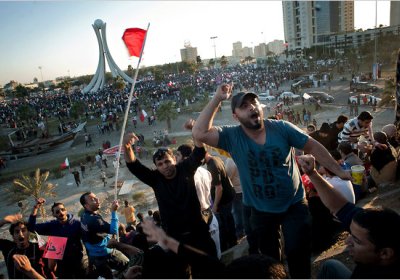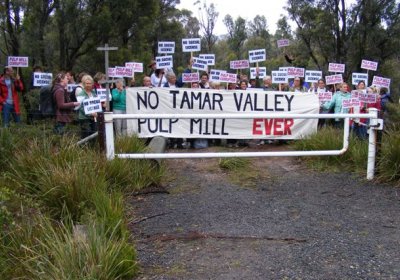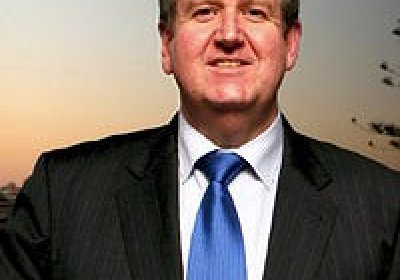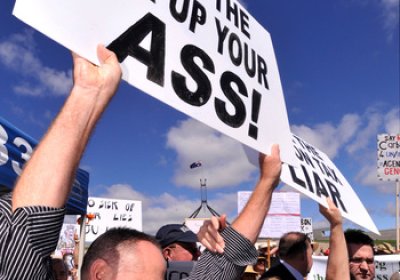For many years, competitions granting prizes have been a successful tool used by marketers to try to promote their cause or business.
However, there should be great concern when the prize up for grabs represents sexist ideas and targets women who feel inadequate about their appearance.
Last month, Sin City Nightclub on the Gold Coast promoted breast enhancement surgery “worth $10,000” as a competition prize.
875
The pro-democracy movement in Bahrain has been severely weakened by the brutal wave of repression that began on March 15.
Attempts to reignite pro-democracy protests have been broken up by government security forces and strikes have been called off.
Troops from Saudi Arabia and the United Arab Emirates entered Bahrain on March 14 to help the Bahraini government “restore order” by attacking thousands of pro-democracy protesters.
If the last federal election promised the beginnings of a break from the two-parties-for-capitalism electoral system that has plagued Australian politics for the last century, the March 26 NSW election seems to be a lurch in the other direction.
The Liberal-National Coalition won dominance of the Legislative Assembly and (with small right-wing parties) control of the Legislative Council because a large number of working-class voters punished the Labor party with a 13.5% swing in primary votes.
About 8000 people demonstrated for urgent action on climate change in Sydney's Belmore Park on April 2 in a powerful counter-mobilisation to a 2000-strong climate deniers rally led by right-wing radio shock jocks Alan Jones and Chris Smith from Radio 2GB held in Hyde Park.
The climate deniers rally was a repeat of a similar-sized rally held in Canberra a week earlier and is part of an attempt to build a right-wing populist Tea Party-style movement as exists in the US.
The climate change activists rally was organised by the internet-based group GetUp!
Every election time, a fraction of the population turn up to a polling place, muttering under their breath, and give withering looks to the volunteers offering them “How to Vote” cards.
They wait in line to get their name marked off. With their obligations completed for another few years, they hastily scribble a “1” next to the name of whichever candidate happens to come first on the page, and, still muttering, march off home.
Five revolutions in postwar Latin America have seen illiteracy as a neocolonial battleground.
Salvador Allende’s Chile — birthplace of How to Read Donald Duck, an iconic attack on cultural imperialism — reduced illiteracy from 15.2% to 6.3% in under two years (1971-73), triple the rate of any regime before or since.
In Nicaragua, the Sandinistas slashed the Somoza dictatorship legacy of 50% illiteracy to just 13% before the end of its first full year in power (1980), catapulting women to cultural and political prominence in the process.
Environment Tasmania (ET), the Australian Conservation Foundation (ACF) and The Wilderness Society (TWS) launched television and radio advertisements on March 30 that call for an end to logging in native forests.
The ads feature University of Tasmania biologist Peter McQuillan, who says: “We need government to implement the agreed forest solution”.
“Peace is not just the absence of violence; but the presence of justice,” Samah Sabawi, Palestinian-Australian writer, and co-author of Journey to Peace In Palestine, told an audience of about 80 people at the University of Queensland on March 31.
She was commenting after a showing of Michael Weatherhead’s excellent documentary Return to Gaza. The documentary is based on the journey of her brother, Fetah Sabawi, who returned to Gaza with his wife and child in 2006 to visit family members and set up a music school for young Palestinian refugees.
I was having a conversation about the likely outcome of the NSW elections on Radio SkidRow, a Sydney community radio station, just days before the March 26 election.
“We know what is going to happen after [the Liberals'] Barry O’Farrell wins the election, don’t we?” I said. “He’ll wait a couple of weeks then he will announce that Labor has left the cupboard bare so they’ll have to bring in an emergency budget.
US progressive journalist and author Joe Bageant died on March 26. Bageant is best known for his 2007 book Deer Hunting with Jesus: Dispatches from America’s Class War, in which he writes about his home town of Winchester, Virginia.
In the book, Bageant investigated how the betrayal of poor whites by the Democrats led to many supporting the Republican Party, despite it being against their interests. He also wrote many articles and essays. His last book, published in September 2010, was Rainbows: A Redneck memoir.
Two days before a March 23 rally against the government’s proposed carbon price took place in Canberra, Liberal MP Dennis Jensen told reporters gathered outside parliament house why he opposed the policy.
He held up a piece of charcoal and dropped it to the ground. “Does anyone know what that is? Charcoal, also known as carbon,” he said. “If you notice when I let it go, it doesn't float into the air.”
Things haven’t been going well for the Israeli occupation over the past few years. Numerous Israeli atrocities, such as the invasion and blockade of Gaza and the killings of civilians on the aid flotilla, have made many people aware of the truly oppressive situation facing the occupied Palestinians.
Lately, Israel has hardened its repression against the Palestinians even further in response to the popular revolts breaking out in the surrounding Arab countries and the loss of its ally, the Mubarak regime in Egypt.
- Previous page
- Page 2
- Next page











